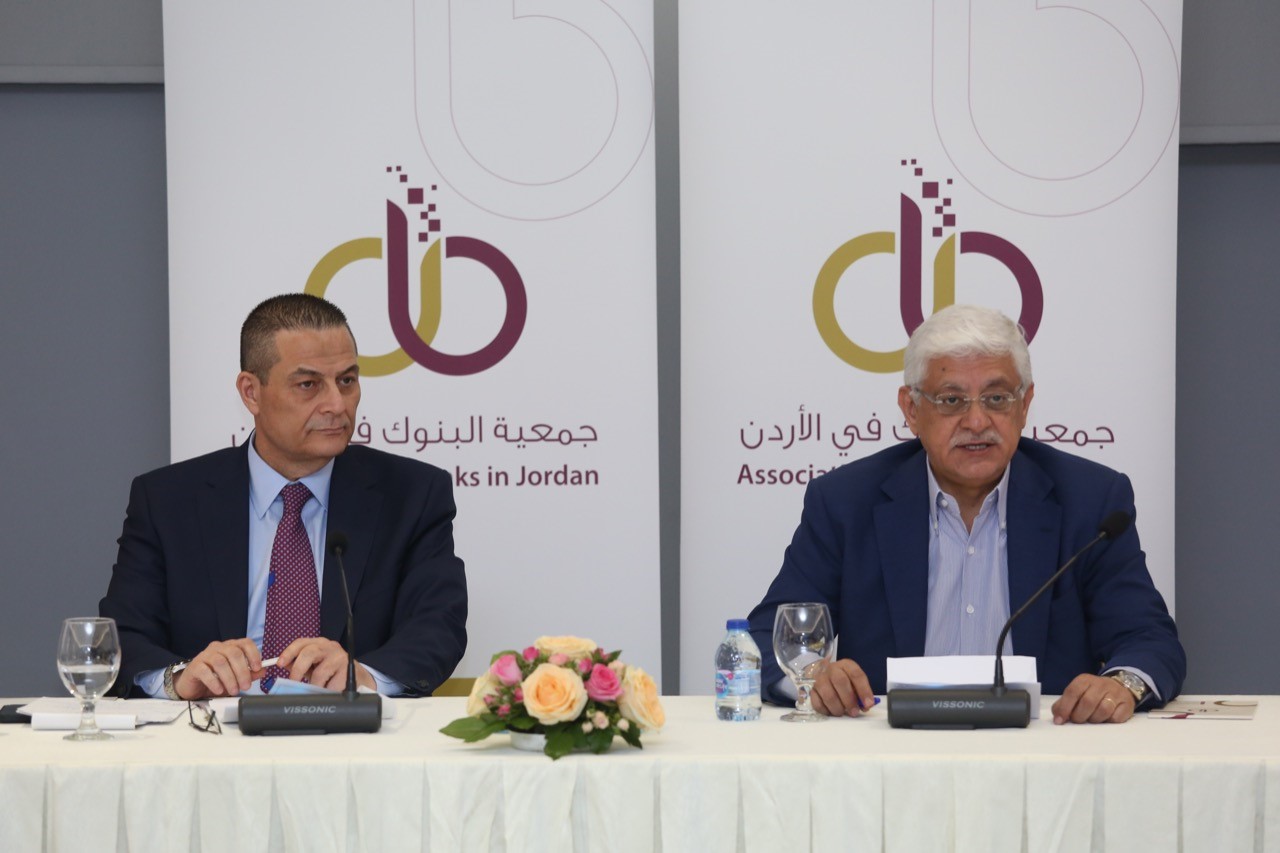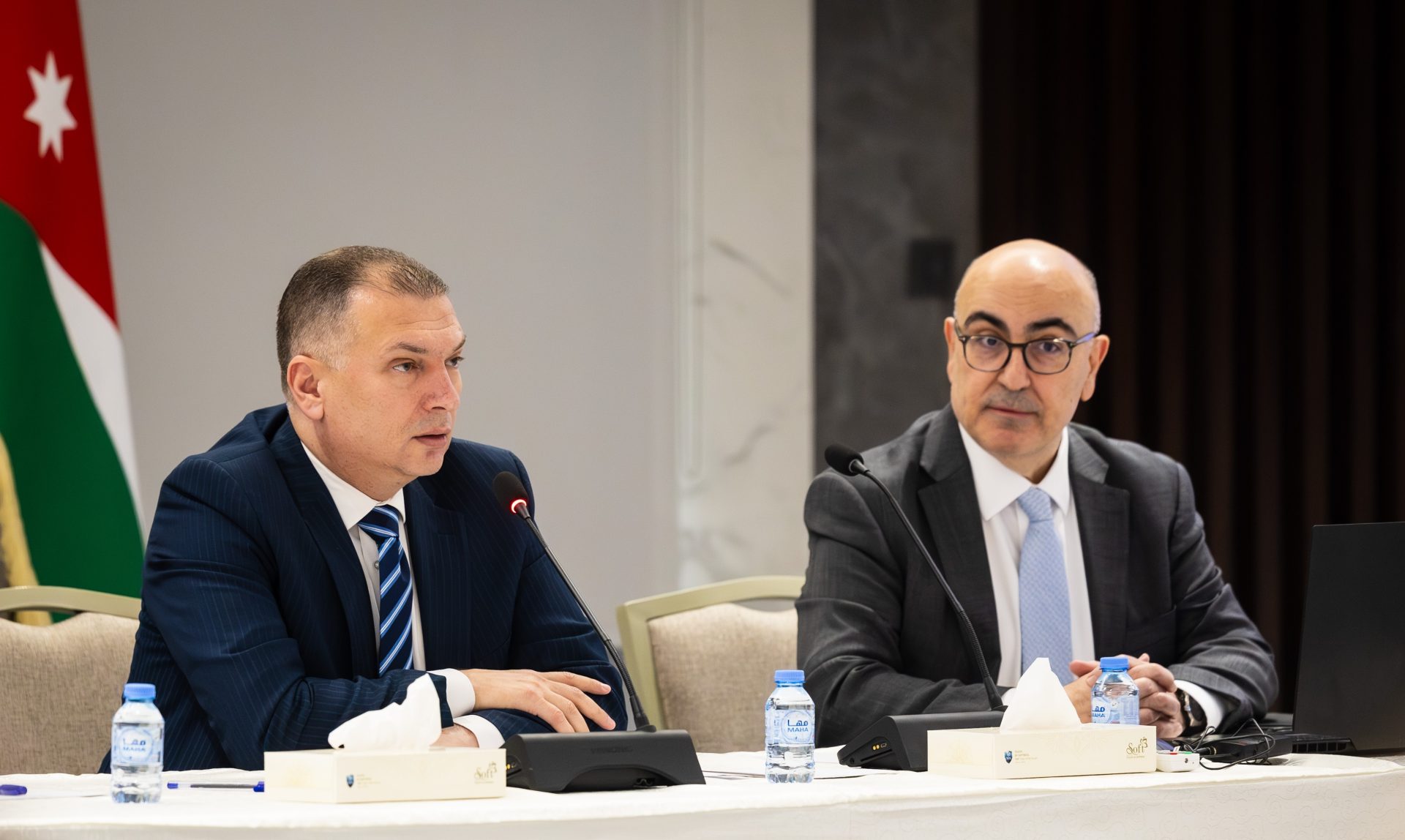
Central Bank Governor:
• The national economy is heading towards a gradual recovery from the repercussions of the pandemic.
• The Central Bank will maintain its financing windows until the recovery of the economic sectors is secured.
• Central Bank reserves record high levels amounting to 18.0 billion dollars.
• The Central Bank will continue to support SMEs and urges banks to support these companies.
• The system of microfinance companies will enter into force at the end of this month, and all companies that engage in financing activities will be subject to the control and supervision of the Central Bank.
The Governor of the Central Bank, Dr. Adel Al-Sharkas, met today, Tuesday 10/5/2022, at ABJ headquarter, the heads and members of the boards of directors of banks. He valued the great efforts made by banks in supporting the national economy to mitigate the repercussions of the Corona pandemic on companies and individuals, he also valued their responsible and effective implementation of the initiatives of the Central Bank. Dr. Al-Sharkas reviewed the most prominent global and local economic developments in the monetary and banking conditions, and the priorities of the Central Bank in the next stage. He also indicated that the global economy is witnessing successive shocks due to the repercussions of the pandemic as well as the subsequent effects of the Russian-Ukrainian war and the closures in China, which contributed to reducing the global economic growth forecast for the second time this year by about 0.8 percentage points to reach 3.6% in 2022. He pointed out that many countries of the world today are recording unprecedented rates of inflation since the eighties of the last century due to these shocks.
Al-Sharkas stressed that the national economy is moving at a steady pace towards recovery from the repercussions of the pandemic citing the positive performance of many macroeconomic indicators such as the monetary and external sector, which enabled the national economy to record a growth of 2.2% during 2021, exceeding previous expectations. particular. He expected the economic growth rate to rise to 2.4% in 2022, driven by the continued improvement in the performance of many economic indicators, as the Kingdom’s receipts from tourism income grew by 251.4% during the first quarter of 2022, and workers’ remittances recorded a growth of 1% during the first two months of the year noting to the growth of national exports by 37.2% during the first two months of 2022. He also said that the impact of the global inflationary wave is still limited on the national economy expecting that the inflation rate will reach a level ranging around 3.0% at the end of this year.
Al-Sharkas affirmed that Jordan was able to implement many economic reforms within a decade, through which it was able to consolidate the confidence of the international community pointing out that fixing the Kingdom’s credit rating at a “stable future outlook” is a testimony to the strength of the national economy. He added that the current stage is witnessing an intense national movement to prepare an economic vision for the next ten years with the aim of stimulating growth and creating job opportunities in the Kingdom by holding economic workshops under the royal patronage.
The Governor touched on the Central Bank’s management of monetary policy and its keenness to balance the requirements for achieving monetary stability, as a main goal, and providing financing channels on concessional terms to support economic growth, which was the goal behind launching the Central Bank’s two programs for financing on concessional terms worth 2.0 billion dinars. He also pointed to the keenness of The Central Bank to supports SMEs and enable them to access various financing lines at appropriate costs, especially companies that have the ability to continue their activities and recover their profits. He stressed the bank’s commitment to the fixed exchange rate system for the Jordanian dinar against the US dollar at its current level, supported by the presence of a high balance of foreign reserves, currently amounting to 18.0 billion dollars, and the presence of an impenetrable banking system that enjoys high financial strength indicators that were not affected by the repercussions of the pandemic.
Dr. Al-Sharkas reviewed the agenda of the Central Bank during the next stage, which will focus on many priorities, including maintaining its financing windows until the recovery of the economic sectors is secured, calling on the banks to continue to support companies that still have an opportunity for their continuity and recovery of their profits. These priorities also include subjecting all companies that engage in financing activity for licensing by the Central Bank under the Microfinance Companies Law, which will enter into force at the end of this month, in addition to monitoring and supervising them to ensure that they carry out their work efficiently. These priorities also include moving towards green finance, enhancing financial inclusion, expanding the digitization process, as well as developing the legislative framework to regulate the banking sector.





